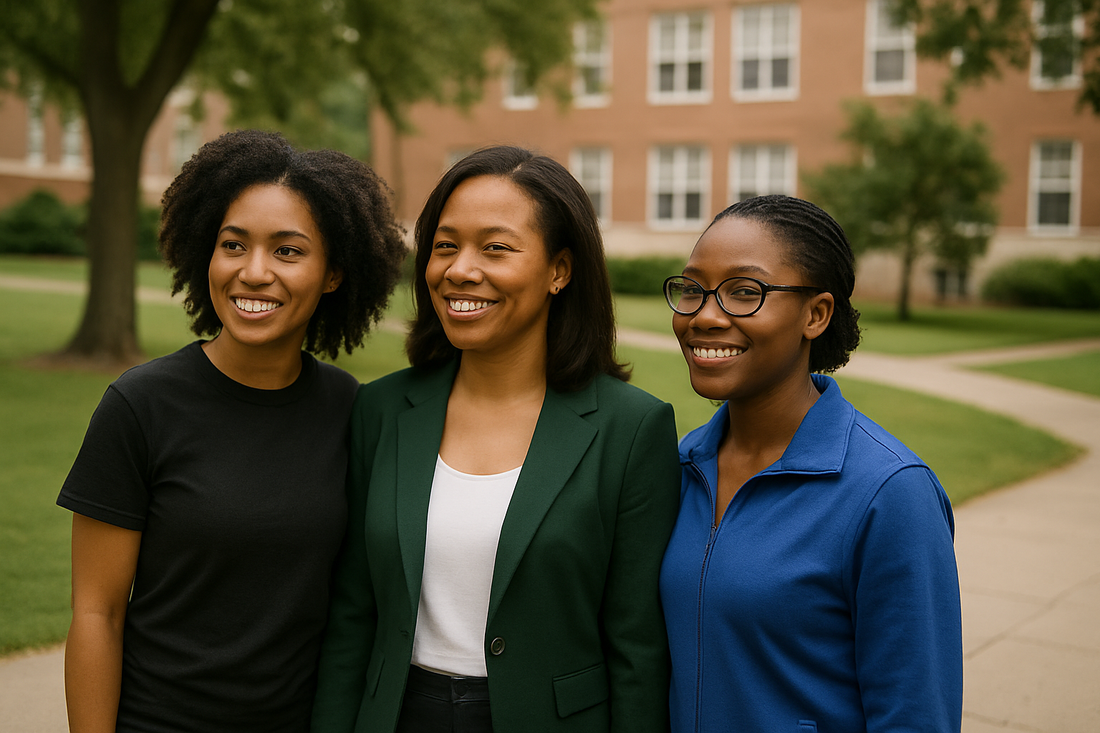
Roots and Wings: How Black Sororities Are Balancing Tradition with Progress
Share
For more than a century, Black sororities within the Divine Nine have carried the sacred flame of legacy, sisterhood, and social justice. From their inception in the early 1900s, Alpha Kappa Alpha, Delta Sigma Theta, Zeta Phi Beta, and Sigma Gamma Rho have stood as pillars of leadership and purpose for generations of Black women. But today, a new generation is asking urgent questions: How do we honor where we come from while making room for where we are going?
The answer lies in the delicate, dynamic balance between tradition and transformation.
Legacy as a Living Thing
Rituals, symbols, colors, calls, and step routines are not just aesthetics—they are language. These traditions anchor Black sororities in history, weaving a rich cultural fabric of pride, resilience, and belonging. The reverence for sacred ceremonies and codes isn’t performative—it’s protective.
Yet legacy, when held too tightly, can become a gatekeeper. Some newer members voice that the line between reverence and rigidity has become blurred. When expectations feel fixed in an era long past, it can inadvertently shut out new voices and lived experiences.
The Generational Gap: Then and Now
Older members often see tradition as a moral compass, a rite of passage earned through discipline and sacrifice. Younger sisters, shaped by intersectional feminism, digital activism, and evolving language around race and gender, seek space for nuance and inclusion. For example:
- A queer member may wonder if her identity can fully coexist with heteronormative traditions.
- A first-generation African or Caribbean-American student may not see her story reflected in the dominant narrative.
- A member passionate about racial justice may question if performance-based rituals are enough when systemic injustice still runs deep.
These are not challenges to the mission—they are calls to deepen it.
Sisterhood in the Age of Intersectionality
Today’s Black woman isn’t a monolith. She is queer, Afro-Latina, disabled, neurodivergent, Muslim, non-binary, and more. For sororities to remain relevant, they must stretch their definitions of sisterhood to include all these realities.
This doesn’t mean erasing tradition. It means allowing tradition to be in dialogue with today’s truths.
Some chapters are doing this beautifully—incorporating inclusive language into rituals, hosting forums on gender identity and Black mental health, and lifting the voices of members whose stories might once have been silenced.
Stepping Forward, Not Backward
Stepping and strolling remain iconic pillars of Black sorority culture. But what’s just as important is what’s happening off stage—the reinvention of service models, political engagement strategies, and campus activism.
New members are leveraging social media to campaign for DEI resources, build mental health coalitions, and push for equity in housing and financial aid. They are blending the spirit of tradition with tools of modern advocacy, showing that the future of Black sororities is both timeless and timely.
Tradition as Fuel, Not Chains
True legacy doesn’t resist change—it evolves to protect it. Tradition should not be a wall, but a foundation. Growth should not be feared as betrayal, but welcomed as a continuation of the very legacy our founders fought to create.
Black sororities are not stuck in time—they are the timekeepers of cultural evolution. Every new sister, every fresh perspective, every challenging question doesn’t dilute the brand. It strengthens it.
Closing Reflection
Preserving tradition and embracing progress is not a contradiction—it is the essence of sustainability. In the tension between the old and the new lies the power to honor our roots while growing our wings.


